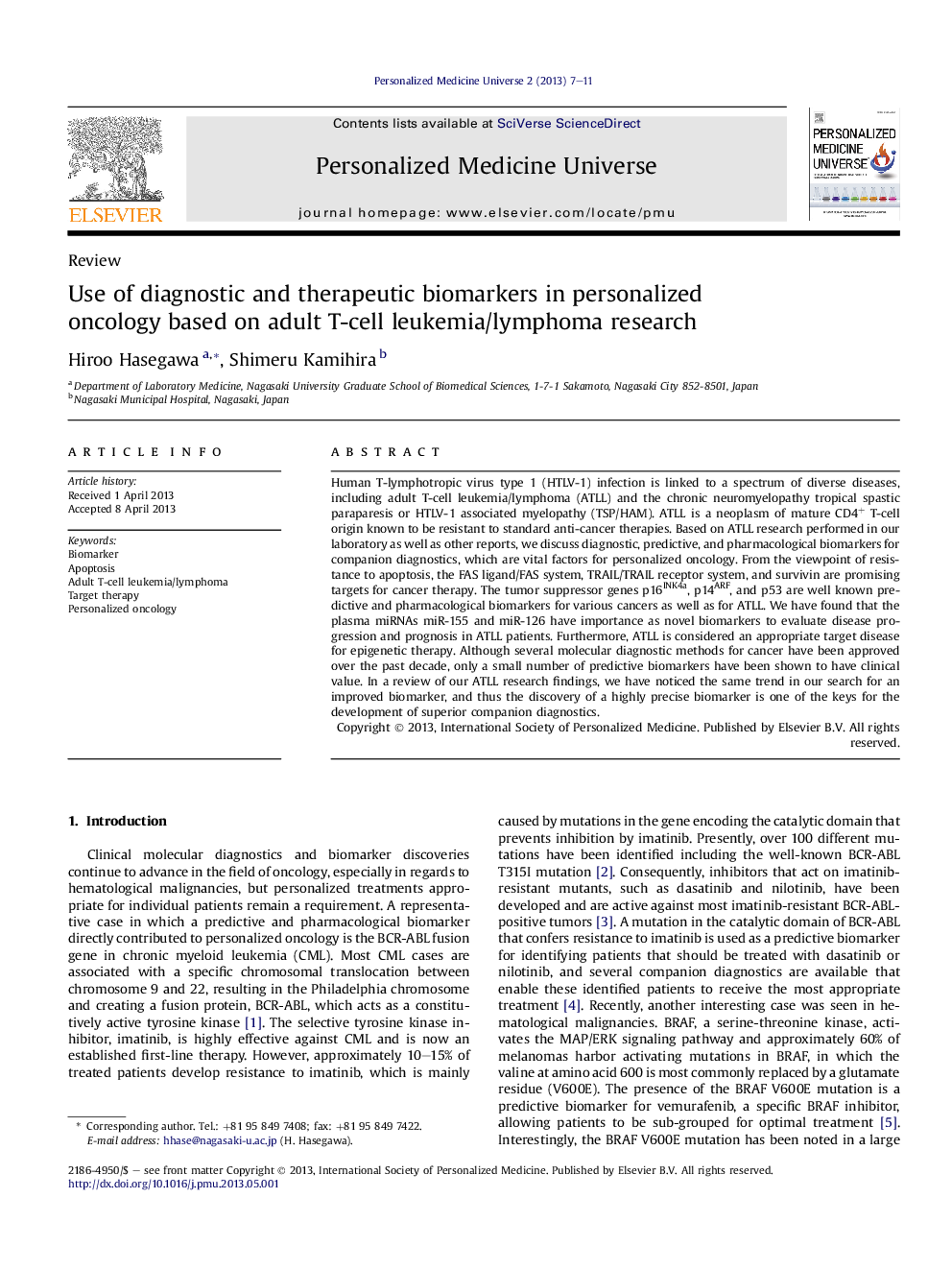| Article ID | Journal | Published Year | Pages | File Type |
|---|---|---|---|---|
| 3382633 | Personalized Medicine Universe | 2013 | 5 Pages |
Human T-lymphotropic virus type 1 (HTLV-1) infection is linked to a spectrum of diverse diseases, including adult T-cell leukemia/lymphoma (ATLL) and the chronic neuromyelopathy tropical spastic paraparesis or HTLV-1 associated myelopathy (TSP/HAM). ATLL is a neoplasm of mature CD4+ T-cell origin known to be resistant to standard anti-cancer therapies. Based on ATLL research performed in our laboratory as well as other reports, we discuss diagnostic, predictive, and pharmacological biomarkers for companion diagnostics, which are vital factors for personalized oncology. From the viewpoint of resistance to apoptosis, the FAS ligand/FAS system, TRAIL/TRAIL receptor system, and survivin are promising targets for cancer therapy. The tumor suppressor genes p16INK4a, p14ARF, and p53 are well known predictive and pharmacological biomarkers for various cancers as well as for ATLL. We have found that the plasma miRNAs miR-155 and miR-126 have importance as novel biomarkers to evaluate disease progression and prognosis in ATLL patients. Furthermore, ATLL is considered an appropriate target disease for epigenetic therapy. Although several molecular diagnostic methods for cancer have been approved over the past decade, only a small number of predictive biomarkers have been shown to have clinical value. In a review of our ATLL research findings, we have noticed the same trend in our search for an improved biomarker, and thus the discovery of a highly precise biomarker is one of the keys for the development of superior companion diagnostics.
